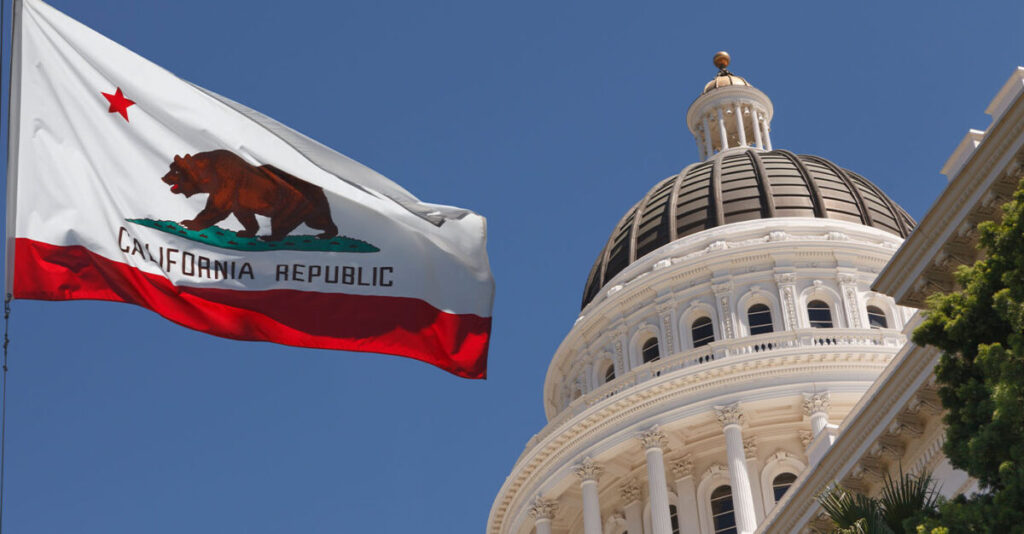By Stacy M. Brown
NNPA Senior National
Correspondent
In a political season defined by distrust, Californians did something rare on Tuesday night. They stood up for democracy.
Proposition 50, approved by a wide margin, was more than a ballot measure. It was a statement of intent. Voters sent a message that when the system begins to fracture, citizens still have the power to restore it.
The initiative gives California’s Democratic-controlled legislature the authority to draw new congressional maps, replacing those crafted by the state’s independent redistricting commission.
The goal is to counterbalance Republican gerrymanders in states such as Texas, Florida, and North Carolina. Analysts say the move could deliver as many as five additional Democratic seats in the U.S. House next year, a shift that could alter control of Congress. Gov. Gavin Newsom saw the fight over Proposition 50 as both political and moral.
He warned that while one side manipulates the system, the other cannot simply play by old rules.

“Donald Trump is trying to rig the midterm elections before one single vote is even cast,” Newsom said. He called on Democrats in other states to “meet this moment head on.”
Former President Barack Obama added his voice to the debate.
“Republicans want to steal enough seats in Congress to rig the next election and wield unchecked power for two more years,” he said.
The message landed with voters who have watched Trump’s party gain influence despite repeated national defeats. Opponents framed Proposition 50 as an overreach.
Arnold Schwarzenegger, the former Republican governor who championed California’s original independent redistricting system, accused Newsom of taking power away from voters. Republicans warned that Democrats were undermining the very process they once defended. Yet many Californians viewed the measure differently. They saw it as a necessary countermeasure in a political landscape where fair play had already been abandoned.
Siddhartha Deb, a newly registered voter, captured that sentiment.
“I don’t like the way the Republican Party is basically trying to rig elections by gerrymandering,” he said. “And this is the only way, to fight fire with fire.” For Democrats, the stakes could not be higher. Proposition 50 represents both a practical and symbolic stand against the erosion of representative government.
“When Donald Trump started ordering his Republican lackeys to save his fading power by rigging the midterms, he didn’t realize he’d be up against a new Democratic Party,” Democratic National Committee Chair Ken Martin said. “We don’t roll over when one team refuses to play by the rules. We fight back. Trump got his showdown, and tonight, we met him in the arena. Californians stood up, rallied together, and passed Proposition 50 to make sure voters, not Donald Trump, decide who represents them in Congress.”
Martin called the victory “a testament to the leadership of Governor Newsom and Democrats across California who refused to back down.” He said, “When we fight, we win, and from Day One, the DNC has been proud to stand right there alongside Californians to defend democracy and deliver a message that echoes nationwide.”
EMILYs List President Jessica Mackler praised the initiative and the women who helped lead it.
“California voters sent a clear message. Republicans will not get away with manipulating the midterms in order to maintain their grip on power,” she said. “Strong women leaders will be key to flipping the House districts drawn by Proposition 50. EMILYs List is already working with the women best equipped to win these districts, take back the majority, and put a stop to Republicans’ barrage of attacks on Americans’ lives.”
For Newsom and his allies, the passage of Proposition 50 represents a reassertion of democratic will in a time of democratic decay.
It is not the work of idealists, but of pragmatists who believe the only way to preserve fairness is to confront those who manipulate it. It is also a reflection of how deeply voters have grown weary of the gamesmanship that dominates national politics. Californians voted not just to redraw maps, but to redraw the moral boundaries of the fight for democracy. The initiative may shift a few seats in Congress, but its real meaning lies in its message. It declares that the will of the people cannot be quietly rewritten by power.
In the end, Proposition 50 was less about partisanship than about preservation. Democracy, Californians decided, is still worth the fight.




